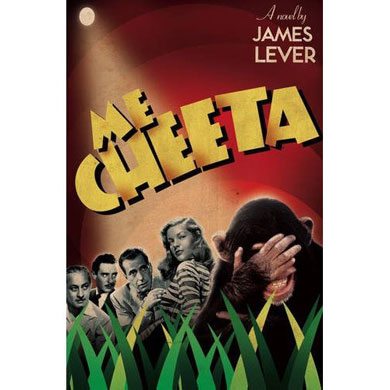
(This was published in February's Hindu Literary Review)
A one line description of Me Cheeta- the 'autobiography' of the chimp in the Tarzan movies- would suggest it is more or less a gimmick. Surely a book that proceeds from such an unreal premise cannot be taken seriously. In fact, it can. There is (as far as we know) no such thing as a monkey capable of language and literature, but then nor is there any such thing as an orc or an elf, or Jane Eyre, or Hercule Poirot, or Sartaj Singh, or Rocket Singh. They are all equally made-up, and one of the pleasant things about a book that is unabashedly fictional is that it reminds us what the essence of fiction is. Artifice. Whether you take for your protagonist a grim, tough-bitten man of the world or a goofy chimpanzee in Hollywood, the question is never: Is it real? The question is only: Does it tell the truth?
On the other hand, there is a reason why most fiction deals in the recognizable, which is the need to keep in touch. The more 'far-out' a character becomes, the less likely it is to serve any useful purpose. It is one thing to imagine a chimpanzee writing, it is another to imagine it writing three hundred pages of interesting memoir- without metamorphosing, at some point, into an ordinary human being. In which case we would be entitled to ask why it wasn't simply one to begin with. So when James Lever decides to get into the head of Cheeta, a chimpanzee abducted from the jungles of Liberia and launched into show-business, he is taking on a task that is legitimate, but difficult. On the whole, he does an excellent job of it. He does it by sticking, more or less, to the core ground of true emotion that Cheeta is perfectly placed to know- a captive animal's feelings for humanity.
This is, however, the less prominent theme of the book. The prominent theme, as advertised on the back jacket and in the bulk of the blurbs, is that of a Hollywood spoof, a parody of a celebrity memoir a bitchy, satirical send-up of the Golden Age of the Dream Factory. And it is true that no one who picks up this book hoping for the salacious atmosphere of gossip is likely to be disappointed. From the introduction, where Cheeta resolves to tell his tale 'without bitterness, name-calling or score settling', 'no matter how oafish the behaviour of certain people, such as Esther Williams, Errol Flynn, 'Red' Skelton, 'Duke' Wayne...', to his continually back-handed praise of his 'colleagues' ('Chaplin is an extraordinarily special human being... but... not even Charlie's stoutest defenders would claim that he was perfect or even likeable or indeed defensible on any level at all'), the entertainment is undeniable.
However, it does not fit. To put high-grade insults in an animal's mouth is funny, but strictly fanciful; the animal in such cases is the prop, not the author. A little less fanciful, but still a stretch, is Lever's portrayal of Cheeta as a delusional and increasingly bitter actor. His cluelessness about how Hollywood really works, coupled with his sense of being at the centre of it, is intended, perhaps, to echo the situation of many of the industry's human stars. But this can only succeed as a brief joke: no really insightful analysis of an artist's struggle in Hollywood can emerge from Cheeta. He is, after all, only a chimp.
All in all, these elements of the book are best treated as stand-alone parodies, snatches of information and comic relief, and if they were all there was to Me Cheeta, it wouldn't have deserved to make the Booker long-list. But there is more. The beating heart of the novel is Cheeta's relationship with humanity, and in particular with Johnny Weissmuller, MGM's Tarzan. “Happy, beautiful, young, untroubled”, Johnny is the centre of Cheeta's world, the human being who epitomizes the best of human beings, the only species that, for all the killing and hurt they cause, truly love and need animals. When Cheeta says this, we hear no satire. His gratitude to humans, and his fascination with their world, is both sincere and believable. Anyone who has cared for a pet will comprehend it. And Lever knows the profundity of this relationship, which is easy to ignore, but worthy of a novel. He sums it up in the lovely end, where Cheeta recalls the memory of a baby, lost in the jungle. “Its trusting gaze was the most vulnerable thing we'd ever seen, but there's power in that... The thing starts to cry... It smiles... I pick it up. It needs me, I think. I'll be its friend..."